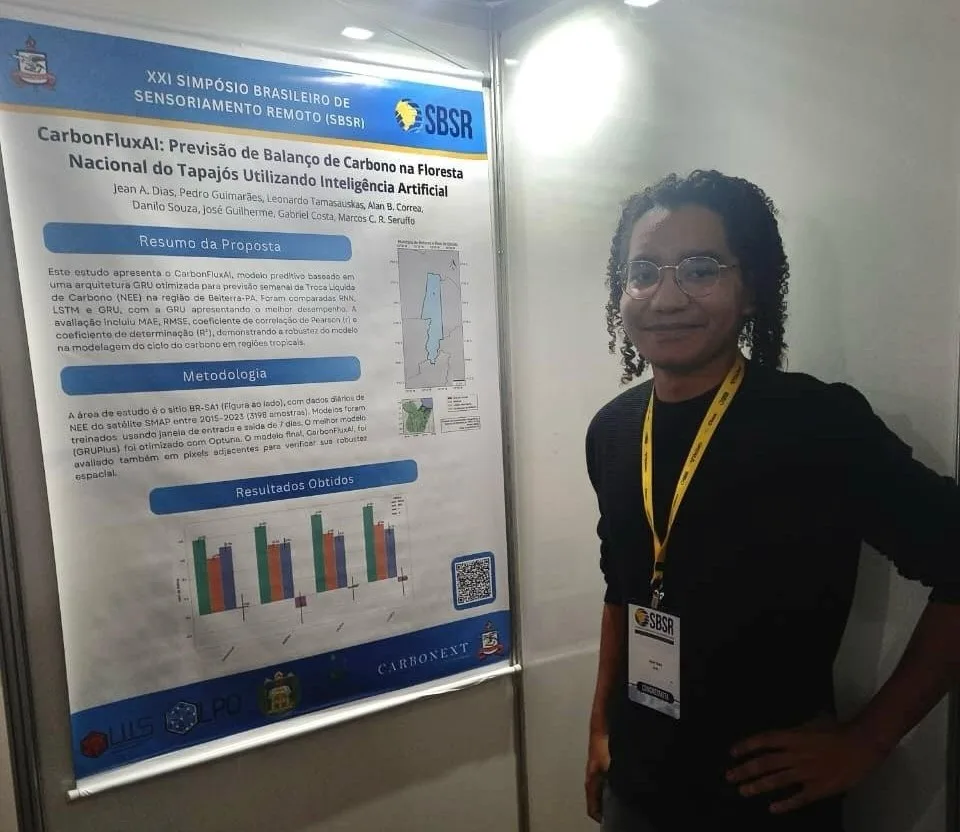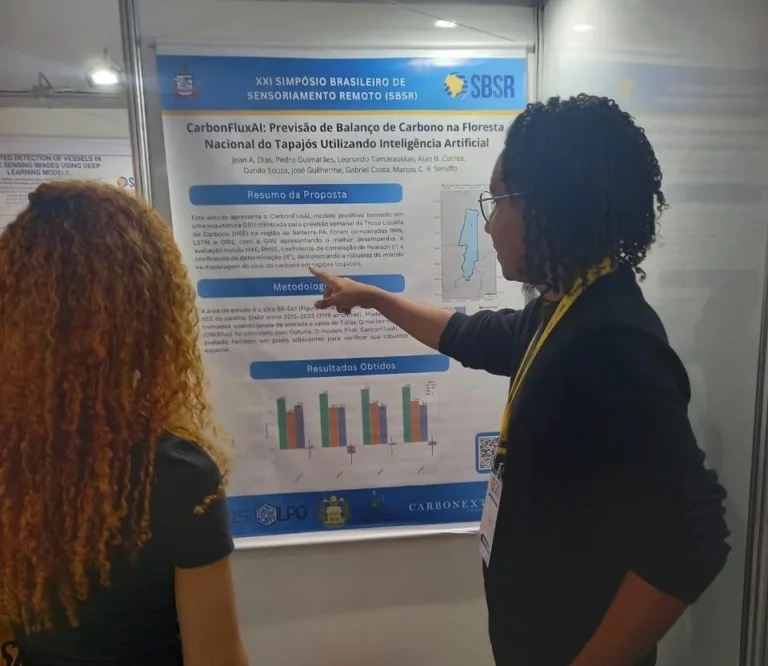Undergraduate student Jean Dias is representing the LIIS.LPO at the XXI Brazilian Symposium on Remote Sensing (SBSR), which is taking place from April 13 to 16 in Salvador, Bahia. The event is aimed at the technical-scientific and business communities, as well as users in the fields of Remote Sensing, Geoinformatics, and their applications. It brings together participants from all over Brazil and abroad to discuss the latest research and technological advancements from the past two years.

On April 14, Jean presented the study entitled “CarbonFluxAI: Carbon Balance Prediction in the Tapajós National Forest Using Artificial Intelligence,” developed in collaboration with the following co-authors:
- Pedro Guimarães (UFPA)
- Leonardo Tamasauskas (UFPA)
- Alan B. Correa (UFPA)
- Danilo Souza (Carbonext)
- José Guilherme (UFPA)
- Gabriel Costa (UFOPA)
- Marcos C. R. Seruffo (UFPA)


The research proposes an artificial intelligence model, called CarbonFluxAI, aimed at predicting the Carbon Balance in the Tapajós National Forest. The model is based on a Gated Recurrent Unit (GRU) neural network architecture. The researchers evaluated three different architectures — RNN, LSTM, and GRU — and identified that the GRU offered the best performance for the proposed task.
Based on this analysis, the team optimized the GRU architecture using the Optuna framework, resulting in a more efficient final model.
The participation in the symposium marks an important milestone for LIIS.LPO, highlighting the lab’s engagement with themes related to sustainability and technological innovation in Brazil.
